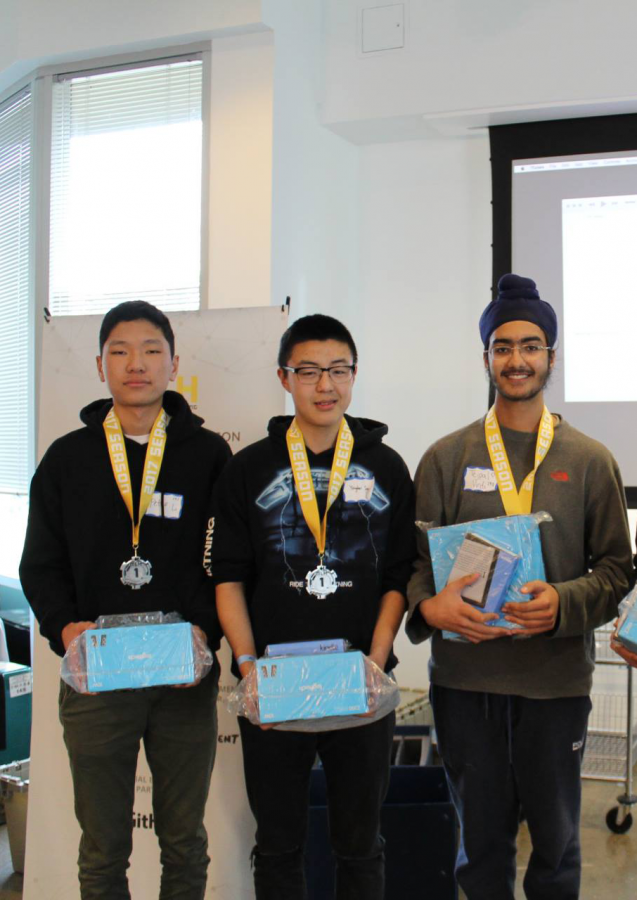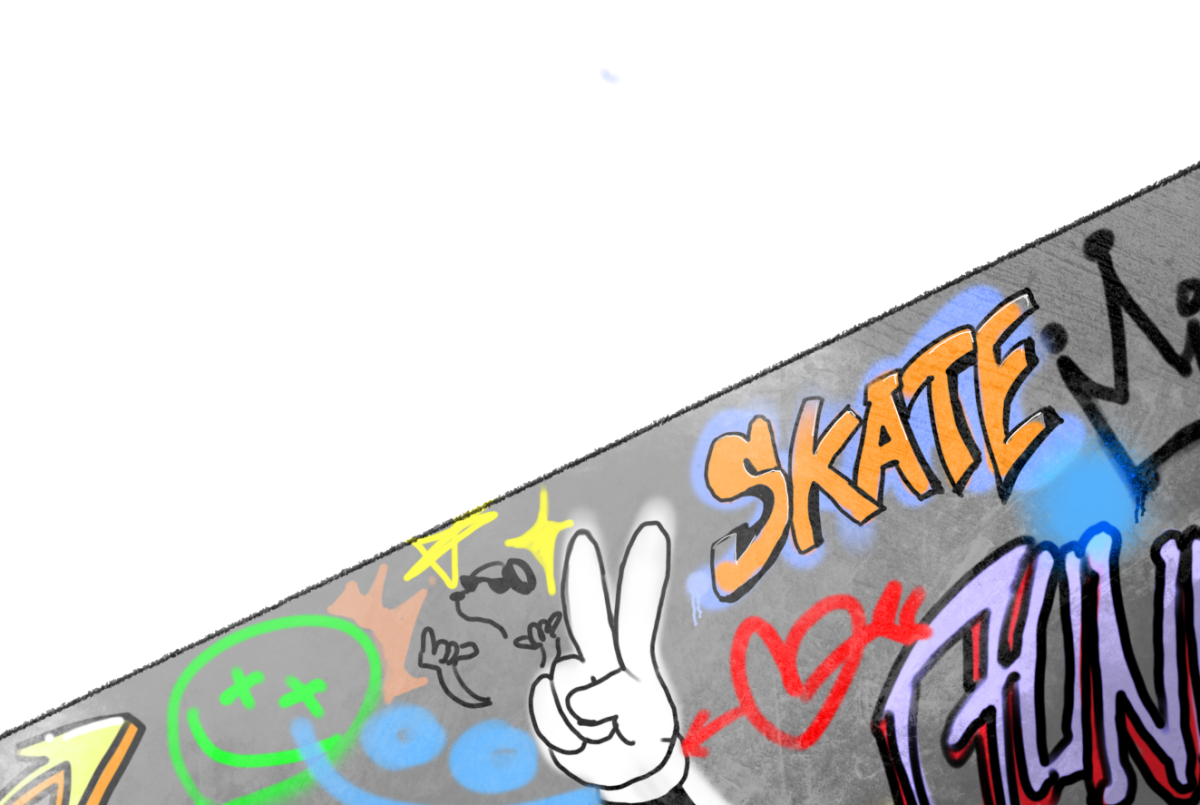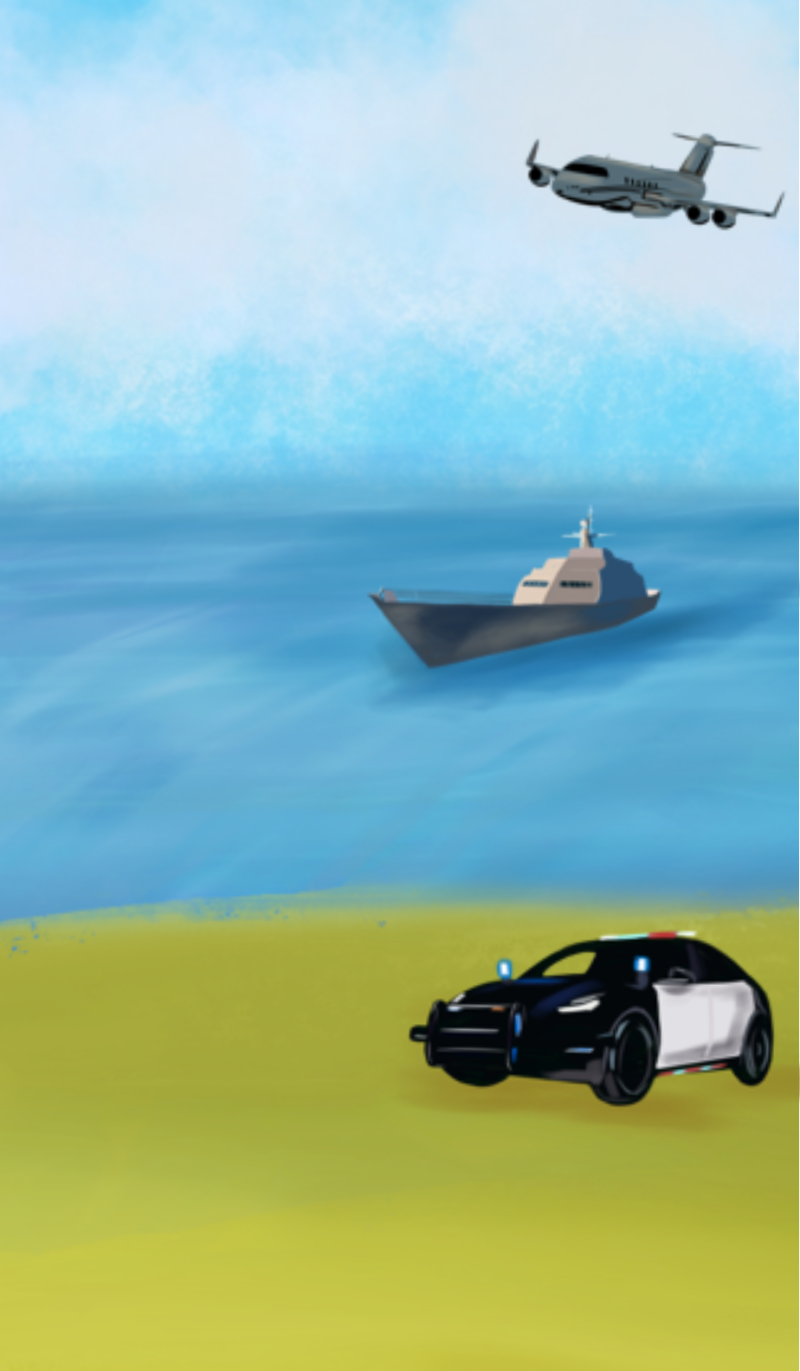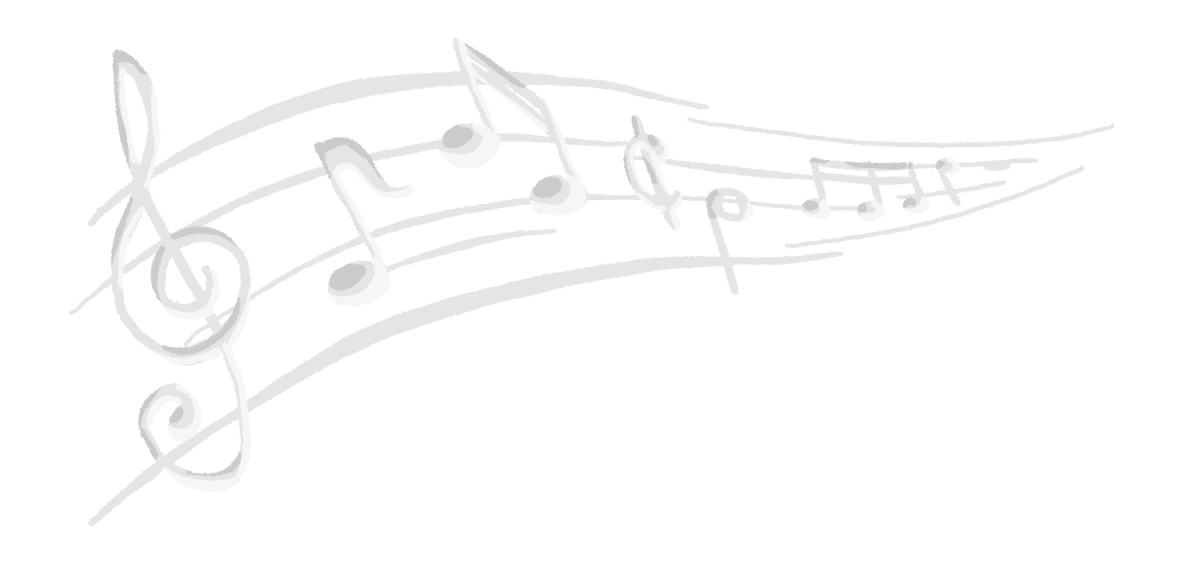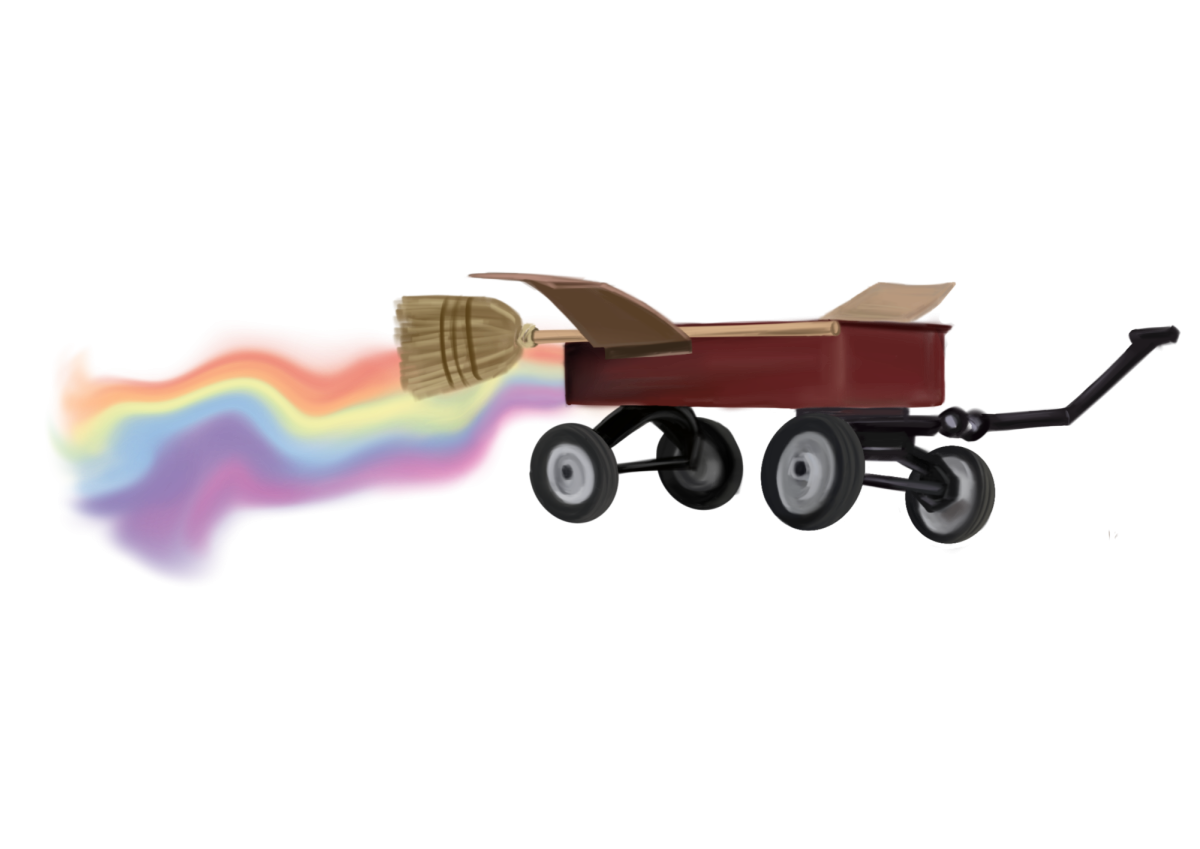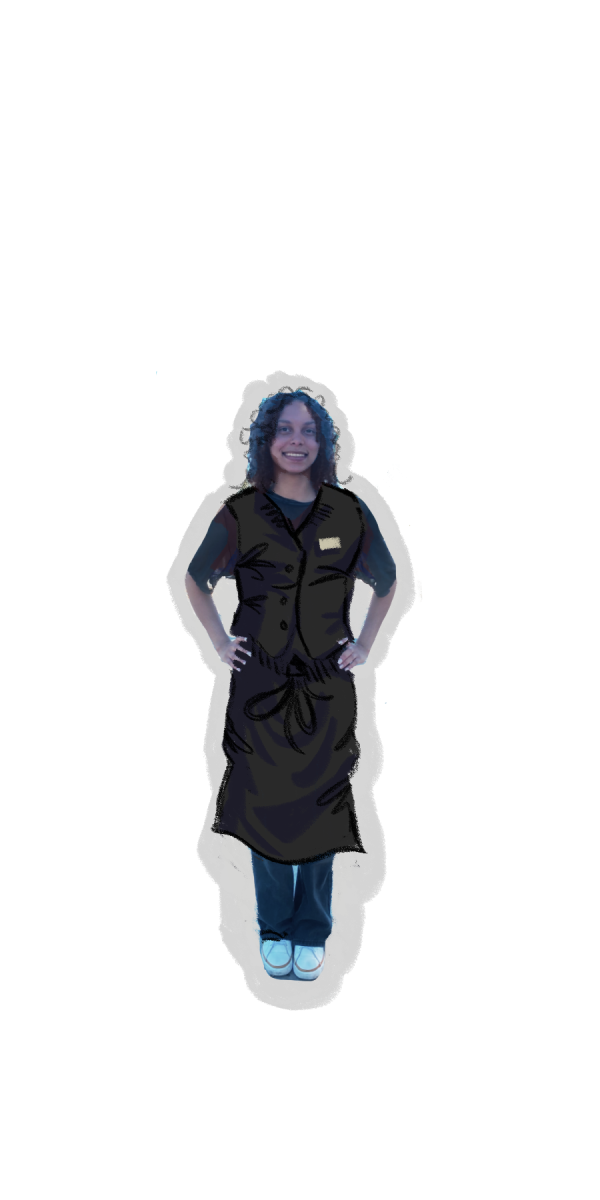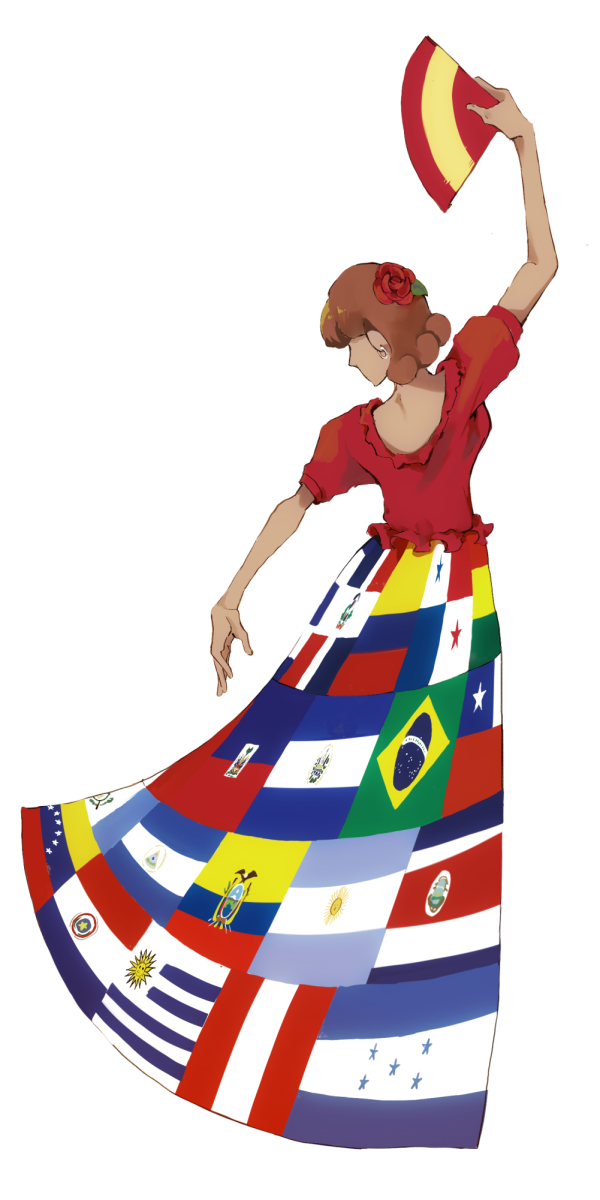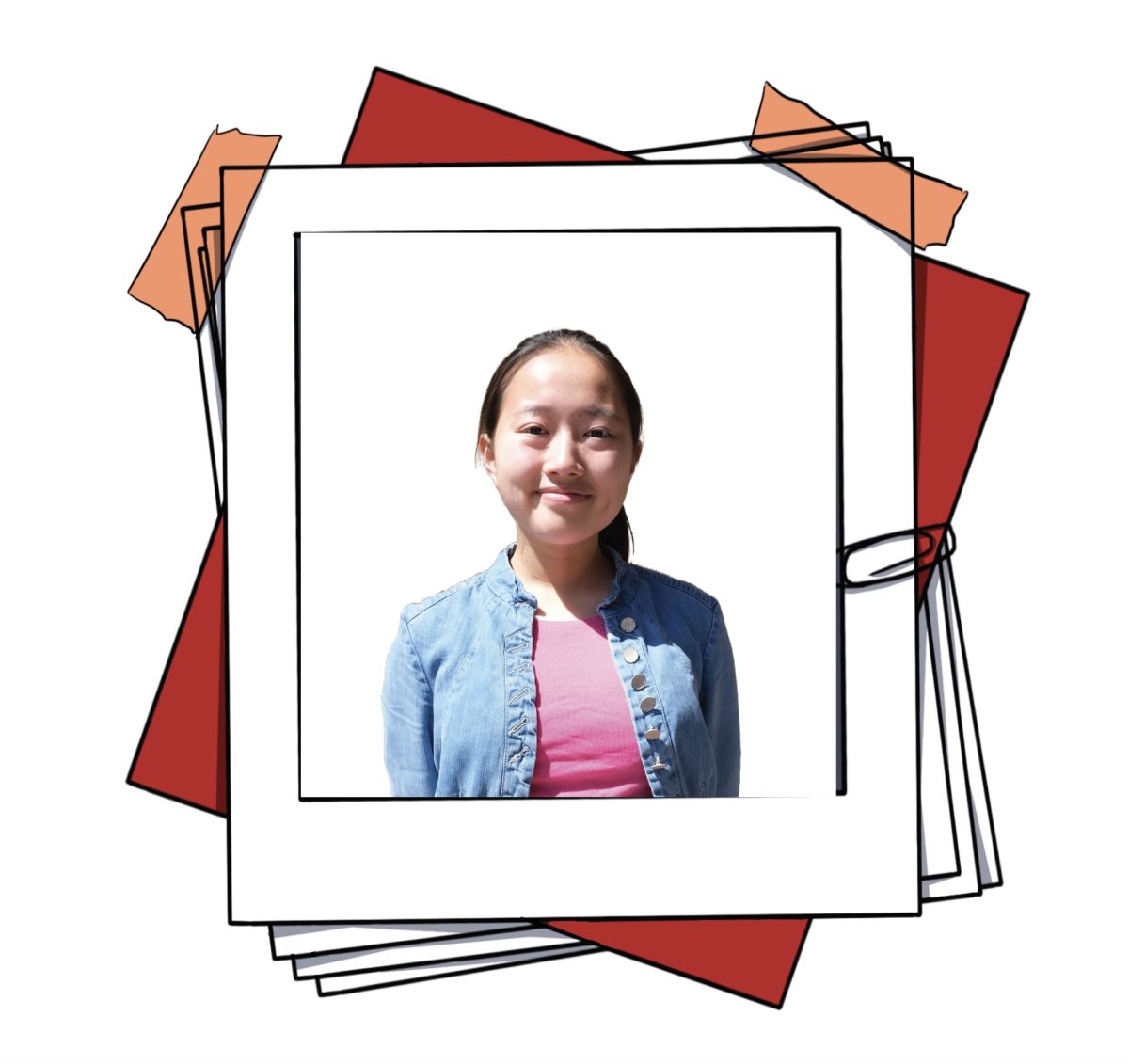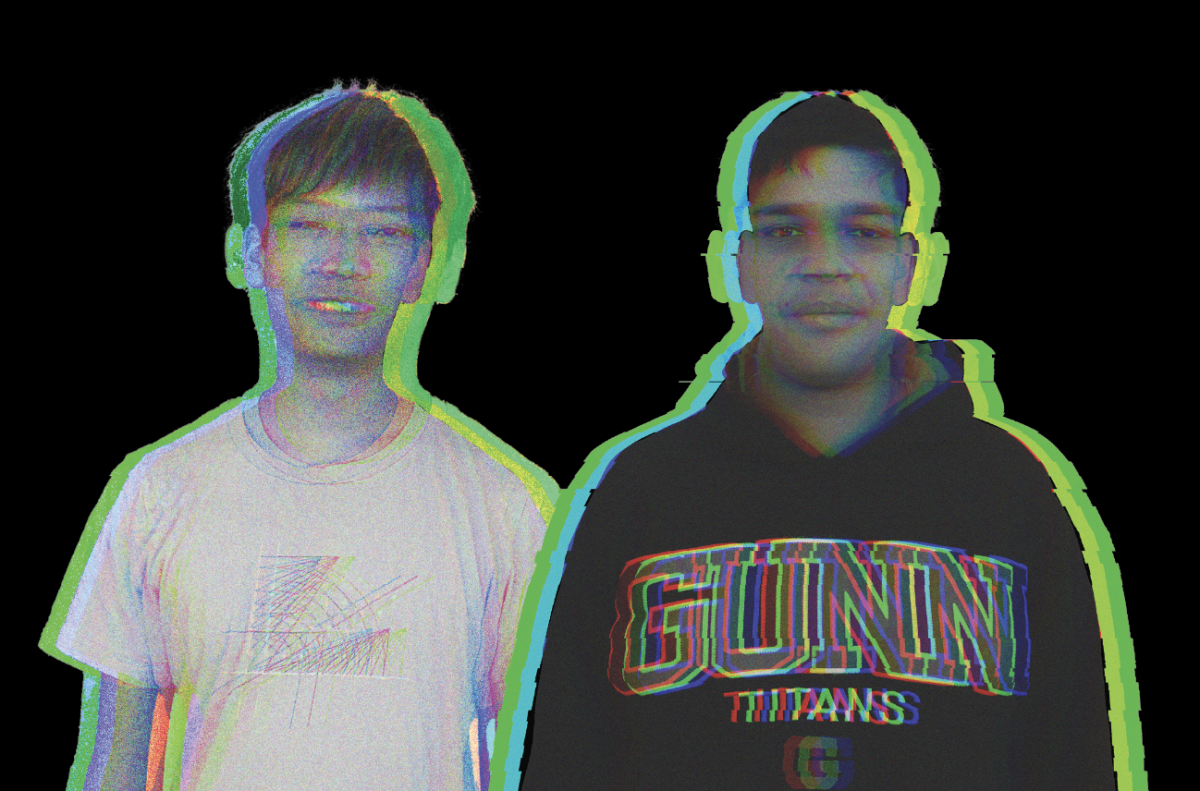Written by Joy Huang
Sophomores John Guibas, Peter Li, Tejpal Virdi and Yinghui Sun won first place in the Los Altos Hackathon for creating SMS Maps, a chatbox service that provides navigation through Short Message Service (SMS) without using data. The hackathon took place at the Evernote Headquarters from Feb. 4 to Feb. 5 and gathered approximately 300 high school students to code and design projects.
Li was first inspired to build SMS Maps during a trip last summer when he had to use Google Maps with limited data; the hackathon allowed him to turn this idea into a reality.
According to Virdi, the team started working at 7 p.m. and spent 12 hours on the project. “We were all busy until 6 p.m. on Saturday and Los Altos Hacks started at 10 a.m., so we ended up getting there eight hours late,” Li said. Even though the team had less work time, they won first place in the competition. In addition to winning a Major League Hackathon medal, each team member received a Kindle E-Reader and Logitech Speaker. “We were kind of surprised,” Li said. “The judges gave us good feedback and seemed impressed. It felt really good.”
According to a Virdi, the team was able to achieve their first-place feat because they went beyond the judges’ expectations. “In a 12 or even 24-hour hackathon, judges value if a team can create a fully functional and applicative product,” he said. “We were able to accomplish this and even give a live demo to all the attendees, which was pretty impressive.”
Li believes the project’s ability to solve a common issue also led the team to success. “[A good project] needs a certain combination of practical use and technical difficulty,” Li said. “Our project was a good mixture of having real world application and also using computer science principles.”
According to Sun, the technological complexity of the team’s project was another reason for their award. “One of the judges was impressed by our presentation and asked to see our source code,” he said. “When he saw the code, he was amazed and I believe this led him to spread the word about our project.”
Virdi and Li worked on implementing the Google Maps application program interface (API) to translate the user’s input into directions, while Guibas used Twillo, a platform that allows software developers to make and receive phone calls and text messages. Sun focused on the presentation aspect of the project. “I wanted our project to look very modern and professional, so I went for a minimalistic, flat logo,” Sun said. “I also applied a custom theme to the PowerPoint presentation and produced a simple demo video.”
For Guibas, hackathons like these provide an opportunity for him to apply classroom concepts to real-world, practical endeavors. “It’s a place of accelerated learning,” he said. “You really want to learn as much as you can and try to work as much as possible.” Sun also discussed the possibility of bringing the team’s ideas into the real world. “Hopefully we [can] take our hackathon ideas into real startup businesses,” Sun said.
The team of sophomores also won second place at Gunn Hackathon 3.0 last November and hopes to win more in the future. “We value the skills each of us bring to the team, and I believe that we have a functional group dynamic,” Virdi said. “We really try to focus on what we have learned in our computer science classes at Gunn and how we can apply them to hackathons and other projects outside the classroom.”
Check the video demonstration of the chatbox service below:


